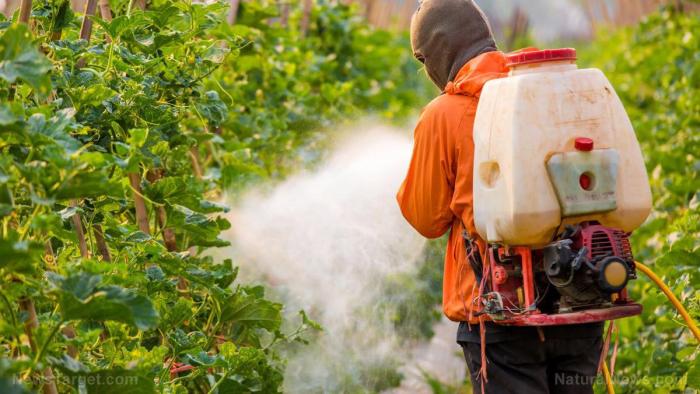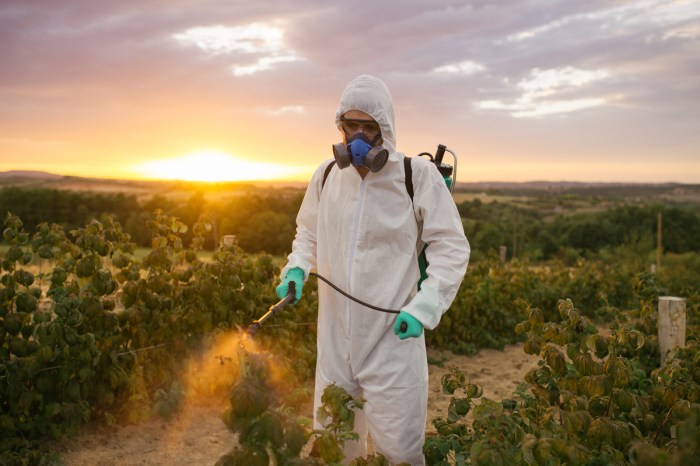Jena is doing research for a presentation about pesticides – Jena embarks on a comprehensive research journey to unravel the intricacies of pesticides, their multifaceted impact on the environment, and the crucial role they play in agriculture. This exploration delves into the challenges and opportunities associated with pesticide use, examining alternative pest management strategies and the regulatory framework governing their application.
Through Jena’s diligent investigation, we gain a deeper understanding of the complex world of pesticides and their implications for our planet and its inhabitants.
The intricate tapestry of pesticide use unveils both its benefits and potential hazards. While pesticides contribute significantly to safeguarding crops and enhancing agricultural productivity, their indiscriminate application can disrupt ecosystems, diminish biodiversity, and pose risks to human health. Jena’s research meticulously examines these contrasting effects, highlighting the urgent need for responsible pesticide stewardship.
Pesticides and Their Impact on the Environment

Pesticides are widely used in agriculture to protect crops from pests, but their use can have significant negative impacts on the environment. Pesticides can harm beneficial insects, such as pollinators, and can also contaminate soil and water.
There are three main types of pesticides: insecticides, herbicides, and fungicides. Insecticides are used to kill insects, herbicides are used to kill weeds, and fungicides are used to kill fungi.
Pesticides can enter the environment through a variety of pathways, including runoff from agricultural fields, leaching into groundwater, and volatilization into the atmosphere.
Pesticides can have a variety of negative impacts on the environment, including:
- Harm to beneficial insects, such as pollinators
- Contamination of soil and water
- Disruption of ecosystem balance
The long-term consequences of pesticide use can be severe, including:
- Reduced soil fertility
- Increased water pollution
- Loss of biodiversity
The Role of Pesticides in Agriculture

Pesticides play a vital role in modern agriculture by protecting crops from pests and diseases. This helps to increase crop yields and reduce food prices.
The benefits of pesticides include:
- Increased crop yields
- Reduced pest infestations
- Improved food quality
However, there are also challenges associated with pesticide use in agriculture, including:
- Development of resistance in pests
- Potential for pesticide residues in food
- Harm to beneficial insects
Alternative Pest Management Strategies
There are a number of alternative pest management strategies that can be used to minimize the use of pesticides. These strategies include:
- Biological control
- Crop rotation
- Cultural practices
Biological control involves the use of natural enemies, such as predators and parasites, to control pests. Crop rotation involves planting different crops in the same field in a sequence that makes it difficult for pests to survive. Cultural practices include using mulches and cover crops to create an environment that is less favorable for pests.
Integrated pest management (IPM) is an approach to pest management that combines multiple strategies to reduce the reliance on pesticides.
Regulatory Framework for Pesticide Use

The regulatory framework for pesticide use varies from country to country. In the United States, the Environmental Protection Agency (EPA) is responsible for regulating the use of pesticides.
The EPA has a number of programs in place to ensure that pesticides are used safely and effectively. These programs include:
- Registration of pesticides
- Monitoring of pesticide use
- Enforcement of pesticide regulations
The EPA also works with other countries to develop and implement international pesticide regulations.
Future Directions in Pesticide Research: Jena Is Doing Research For A Presentation About Pesticides
There are a number of research efforts underway to develop new and more sustainable pesticides. These efforts include:
- Development of new active ingredients
- Improvement of pesticide delivery systems
- Development of integrated pest management strategies
These research efforts are essential to ensure that we can continue to use pesticides to protect our crops while minimizing the environmental impact.
Expert Answers
What are the primary mechanisms by which pesticides exert their effects?
Pesticides employ various modes of action to control pests. Some disrupt the nervous system, while others interfere with growth, reproduction, or metabolism.
How do pesticides contribute to environmental degradation?
Uncontrolled pesticide use can lead to biodiversity loss, disrupt ecosystems, contaminate soil and water sources, and potentially harm human health.
What are the advantages of utilizing alternative pest management strategies?
Alternative strategies, such as biological control, crop rotation, and cultural practices, offer environmentally friendly methods of pest management, reducing reliance on chemical pesticides.
How does the regulatory framework govern pesticide use?
Government agencies establish regulations to ensure the safe and responsible use of pesticides, balancing pest control needs with public health and environmental protection.